A seminar for district and appellate administrative courts focused on novelties of the Law on Administrative Procedure
On September 16, 2022, EU Project “Pravo-Justice” together with partners held a seminar “Law of Ukraine on Administrative Procedure: key novelties, challenges and further steps”. The seminar was conducted for judges of the Eighth Administrative Court of Appeal and district administrative courts of Volyn, Zakarpattia, Ivano-Frankivsk, Lviv, Rivne and Ternopil regions. The event was also attended by professors of the Faculty of Law of Ivan Franko National University of Lviv, justices of the Cassation Administrative Court within the Supreme Court, representatives of the Lviv Regional Justice Reform Council (RJRC) and the Lviv Regional Military Administration.
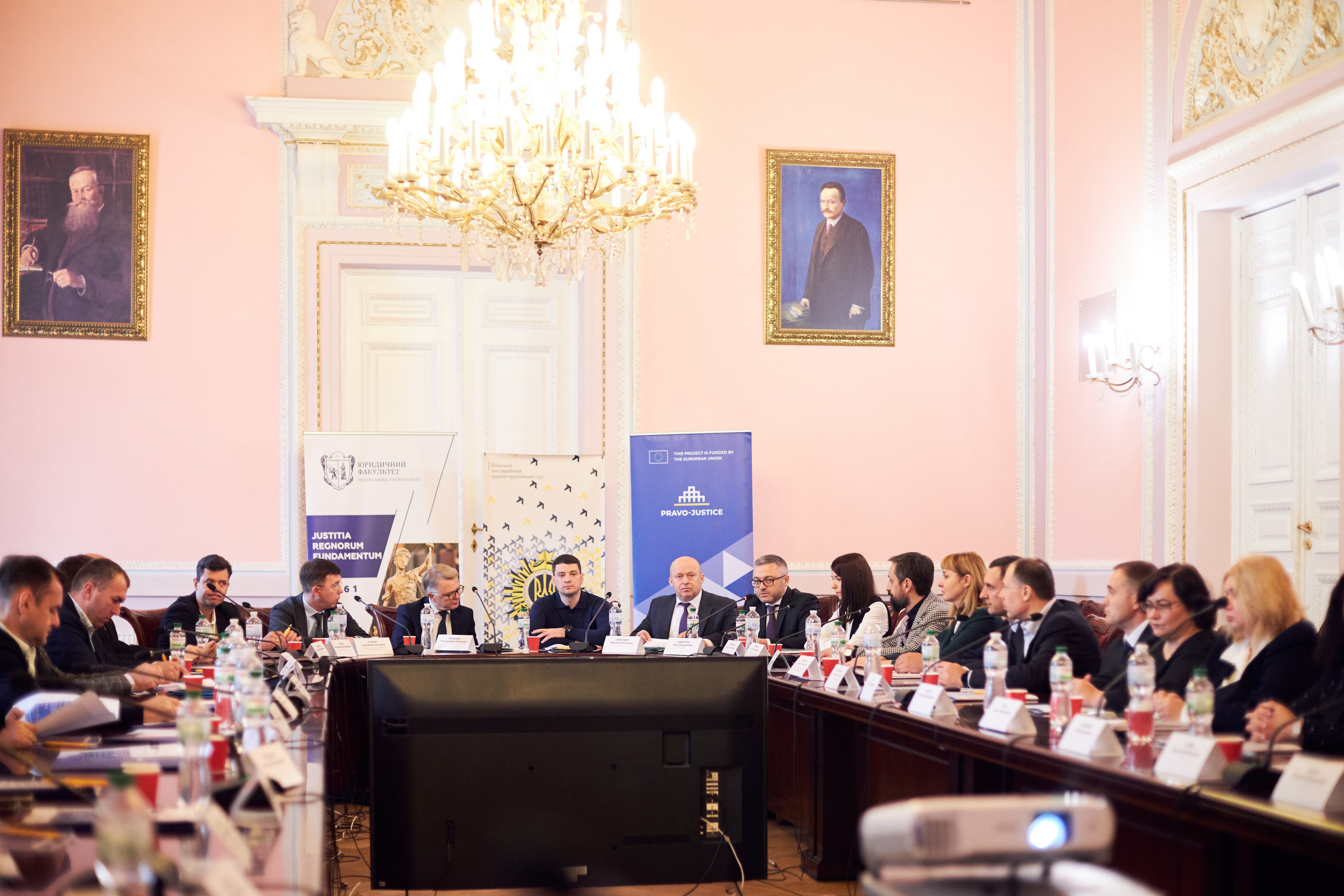
The event was aimed at familiarizing judges with key novelties of the law and discussing potential conflicts and challenges that may arise after the law enters into force, and ways to resolve them.
“The Law on Administrative Procedure is people-centred and contains a whole range of guarantees aimed at protecting the rights of persons applying to an administrative body. For this, extra obligations are imposed on administrative bodies, such as the requirement of properly substantiating the decision and informing the person of the ways to appeal it. We also see other novelties, such as the category of persons concerned, the possibility of reconciliation and a number of other positive points that are included in the law,”said Oksana Tsymbrivska, Deputy Team Leader of EU Project “Pravo-Justice”.
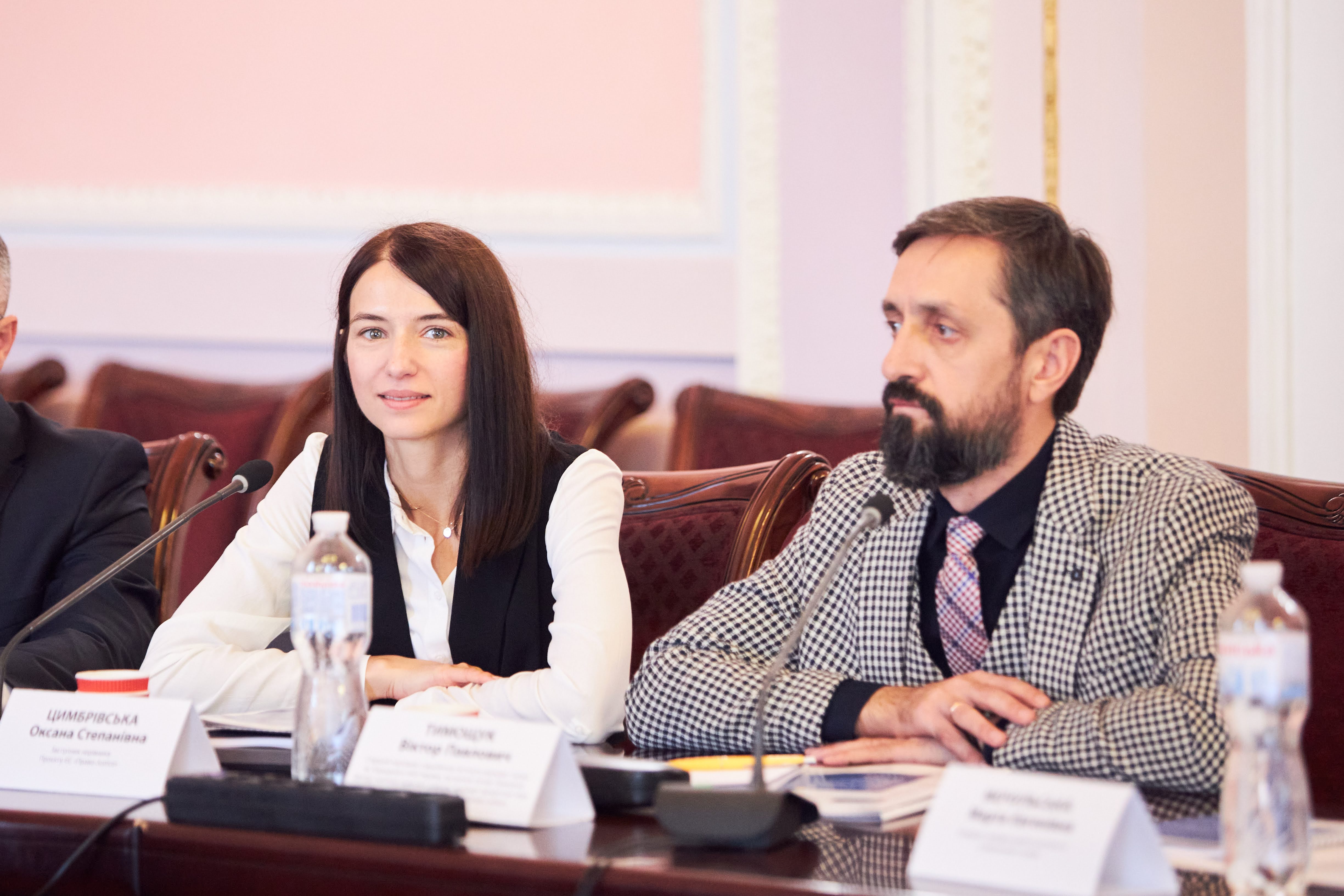
During the first session, Viktor Tymoshchuk, EU Project “Pravo-Justice” national expert told the participants about the subject matter of the law, where it belongs in the legal system, its key terms and principles: “It is important to emphasize that the Law on Administrative Procedure is not only about exercising and protecting the rights of citizens and businesses in relations with the state. In fact, this is also a law on balancing public and private interests. It provides many new tools and opportunities for public administration to resolve cases in an objective, balanced and timely manner and to enforce the administrative acts adopted. This Law ultimately protects honest public servants by transparently regulating their activities”.
Learn more from the presentation “Novelties of the Law of Ukraine on Administrative Procedure”.
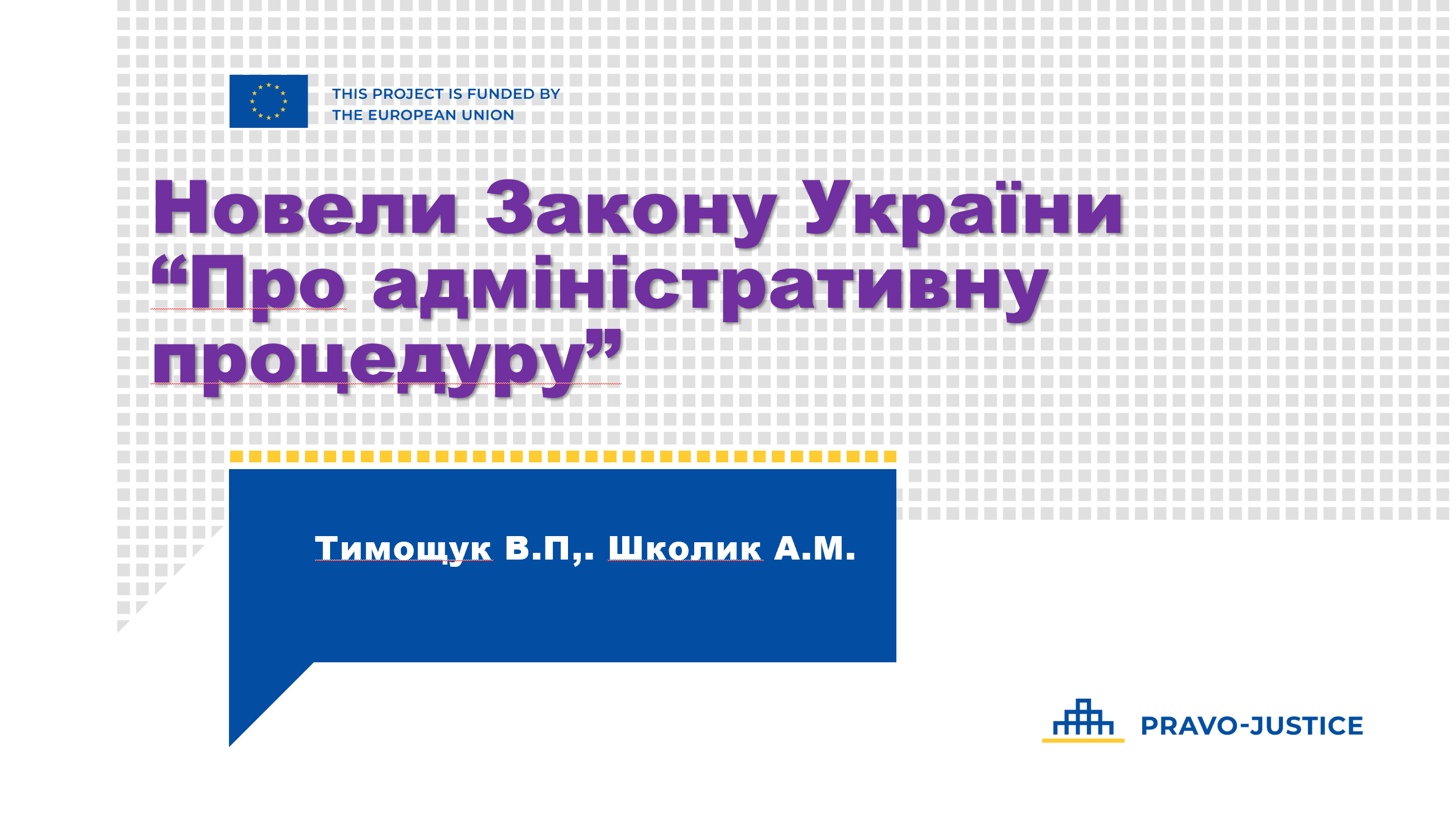
During the international panel, Edith Zeller, judge of the Vienna Administrative Court, EU Project “Pravo-Justice” international expert shared Austria's experience in applying the unified law on administrative procedure adopted in 1925.
“Administrative courts must correct procedural mistakes made by the administrative body when it was considering the case. The Administrative Court either changes the administrative decision or confirms that it was the right decision. At the same time, procedural mistakes made by the administrative body hardly ever lead to quashing its decision in court. In the vast majority of cases, after considering additional circumstances, the judge conducts oral hearings to collect evidence and discuss it with the complainant in order to make the right decision in the respective case,” said Edith Zeller.
The unified administrative procedure is designed to align legislation; such a step will resolve hundreds of conflicts of laws and become a convenient operating modality to be used when citizens and businesses interact with authorities. At the same time, the risk of the conflict of laws is one of the major challenges in implementing the Law of Ukraine “On Administrative Procedure”, which in one way or another impacts hundreds of laws that need to be amended.
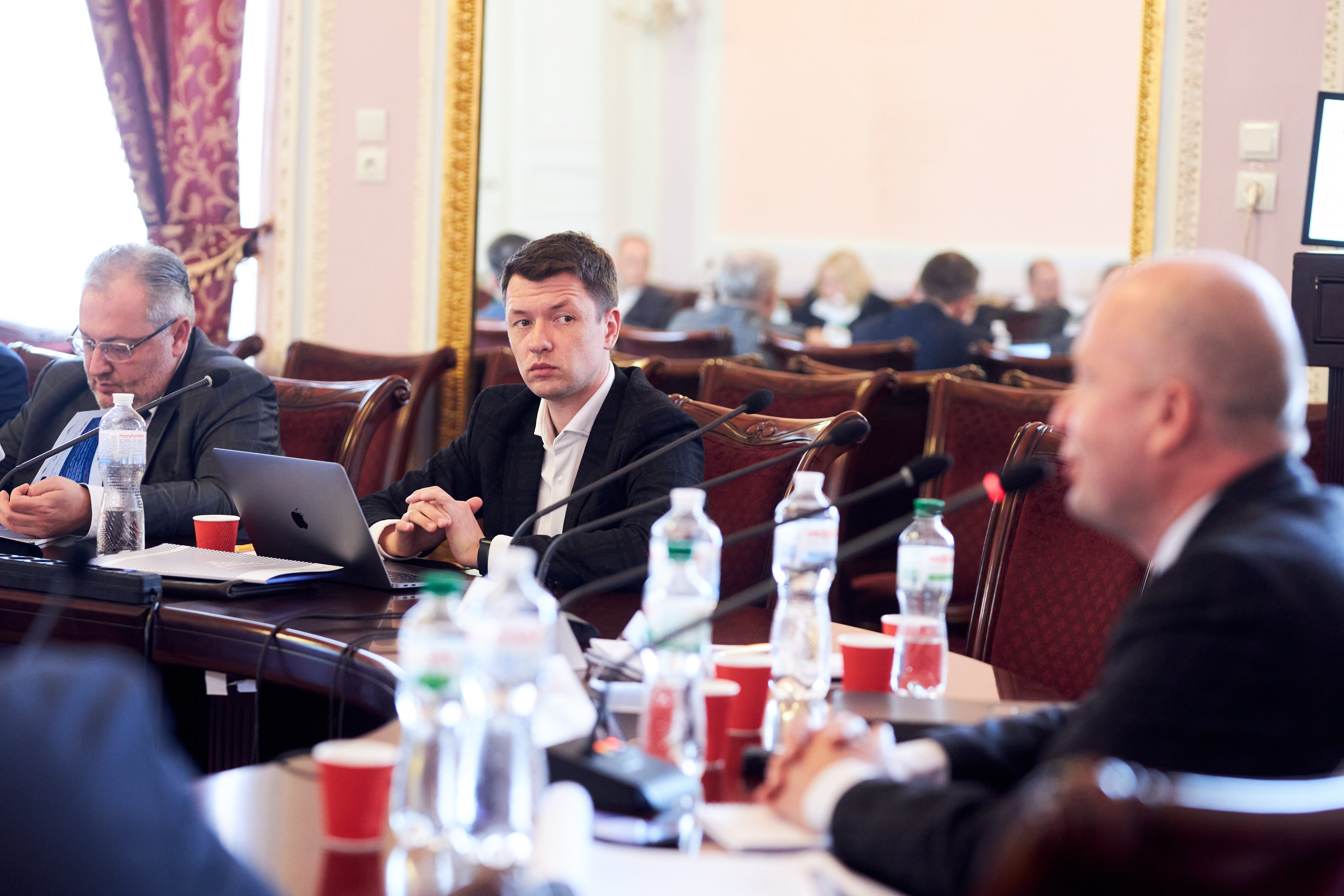
“It is resolving potential conflicts that will be very important as regards law enforcement; until the legislation is amended so as to align it in line with the Law of Ukraine on Administrative Procedure, the courts will play a crucial role. It is through jurisprudence that a unified understanding of the principles contained in the Law of Ukraine on Administrative Procedure should be developed, which will have priority if a conflict arises with special regulations which will continue to apply until respective amendments are made,” said Volodymyr Chaban, EU Project “Pravo-Justice” national expert.
The event is a joint initiative of EU Project “Pravo-Justice”, the Eighth Administrative Court of Appeal, the Faculty of Law of Ivan Franko National University of Lviv, the Supreme Court, the German Foundation for International Legal Cooperation (IRZ) and the EU4PAR Project.
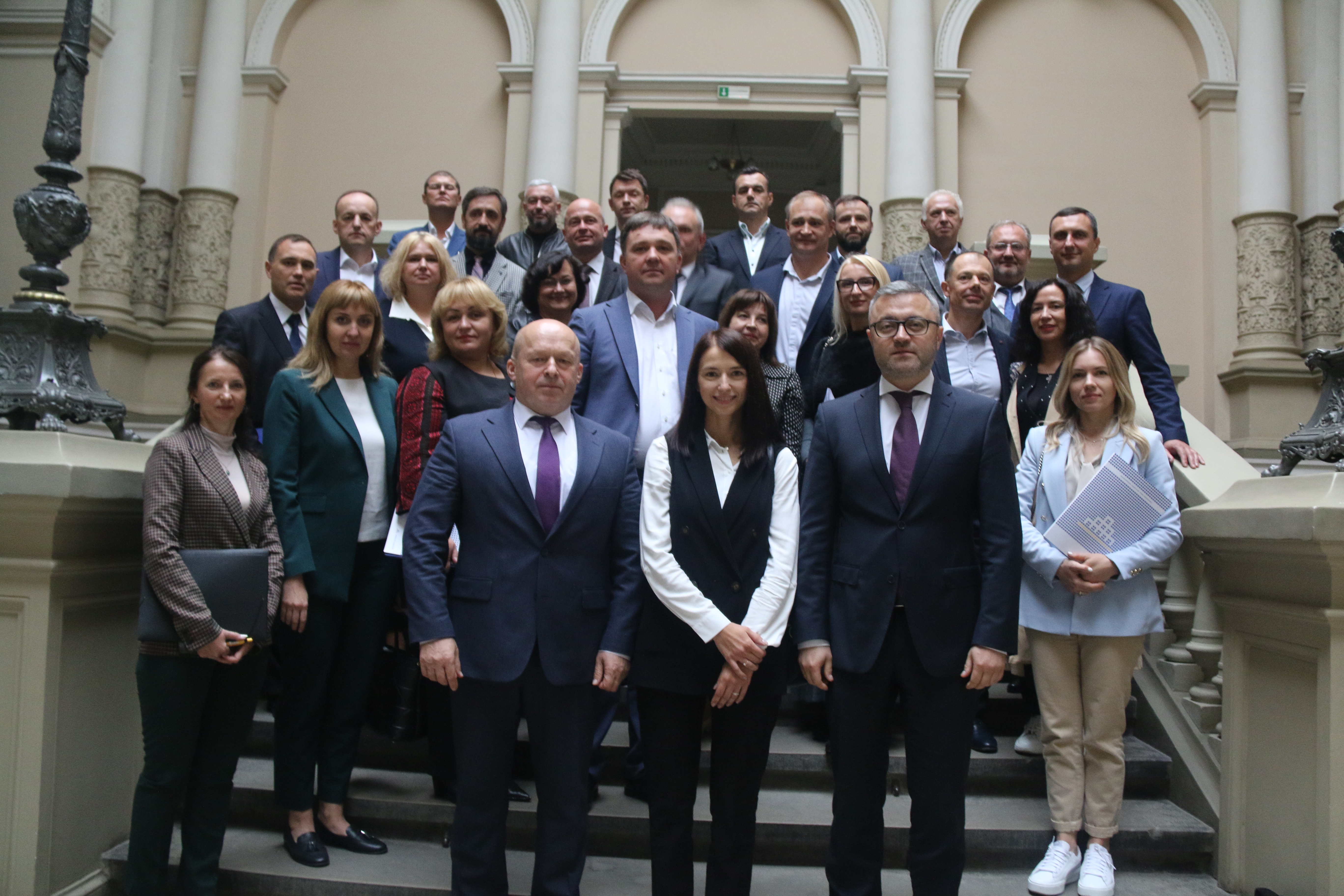
It is further planned to hold seminars for district and administrative courts in other regions.
In July-August 2022, EU Project held an express seminar for judges of appeals and district administrative courts at the National School of Judges of Ukraine, as well as a seminar for judges and court staff of the Cassation Administrative Court within the Supreme Court. The work on developing a standardized course on the Law on Administrative Procedure was also set in motion, which course will become part of the regular curriculum at the National School of Judges.